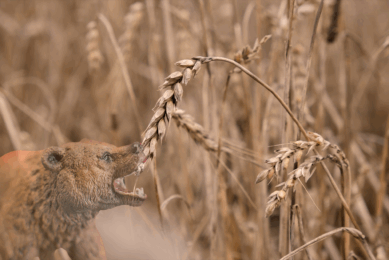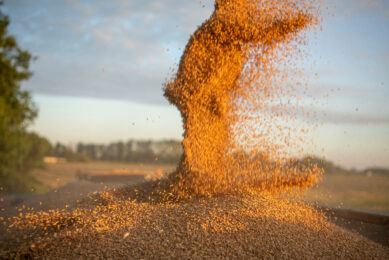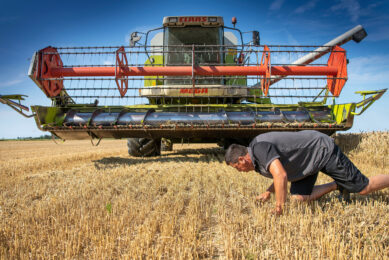Rothamsted applies for autumn GM wheat trial

Britain’s first open field trial of autumn-sown GM wheat could get under way later this year.
Rothamsted Research has submitted an application to DEFRA to plant autumn-sown wheat as part of its GM wheat trial.
Scientists believe the extension of the trial would allow them to study the effects of autumn aphid infestations on their experimental aphid-repelling wheat.
They say autumn-sown Cadenza wheat engineered to repel aphids – a major crop pest – would allow them to gain further data for the experiment.
Research leader John Pickett, head of chemical ecology at Rothamsted Research, said: “With the trial up and running, it seems sensible to make this small adjustment.
“Autumn infestations of aphids are a real problem too, especially with the varied weather we are having.
“This additional data will add a great deal of value to the overall investigation by testing our wheat plant under a more varied range of environmental conditions throughout the year and in accordance with the different times of the year farmers plant their wheat.”
The request to DEFRA will be assessed by the independent Advisory Committee on Releases to the Environment (ACRE), and by members of the public during a 60-day consultation period.
The application asks for permission to conduct the winter sowing of Cadenza wheat, which involves exactly the same GM lines and experimental design as the current spring-sown experiment.
If DEFRA secretary Owen Paterson gives the trial the green light, it will be sown in mid-September and destroyed after 10-12 weeks in late November or late December, depending on the weather.
Rothamsted Research director Maurice Moloney said: “We worked hard last year to engage the public and listened to their views.
“The more data we can gather, the more evidence we will be able to obtain for government and society to make decisions on whether they wish to explore this next-generation GM technology further.”
Rothamsted scientists conducted the first field trial last spring to investigate whether the GM plants work outside in the field, as well as in the laboratory. The trial was successfully harvested last autumn and is being repeated this year.
The controlled experiment being conducted by Rothamsted scientists at the headquarters in Harpenden, Hertfordshire, combines modern genetic engineering with natural plant defences to test whether aphid-repelling wheat works in the field.
For the trial, Cadenza wheat plants have been modified to produce an odour, or alarm pheromone, (E)-β-farnesene, which is also produced by some plants as a natural defence mechanism. It repels aphids, but also attracts their natural enemies, such as ladybirds.
The field trial is part of a five-year project funded by the Biotechnology and Biological Sciences Research Council (BBSRC).
BBSRC director of science Melanie Welham said: “We face the challenge of producing food in a sustainable way, while minimising effects on the environment.
This research is exploring one approach to solving this problem. It is important to carry out these investigations, as the data gathered will help to provide answers about the potential of this type of GM technology and what benefits it could offer.
“Importantly, the findings generated through this extension will add to the picture of how this technology compares to others and it is vital that future decisions are based on scientific evidence.”
Wheat is the most important UK crop with an annual value of about £1.2bn.
Source: FWI











